Introduction: The Urgency of HVAC Repairs in Los Angeles
Living in Los Angeles means enjoying year-round sunshine, mild winters, and hot, dry summers. But these climate perks also make reliable heating and cooling absolutely essential. Whether it’s the peak of a summer heatwave or an unexpected cold snap, a sudden HVAC system failure can quickly turn comfort into crisis. For homeowners and property managers alike, knowing how to respond to an HVAC emergency—and who to call—can make the difference between a quick fix and prolonged discomfort. In this guide, we’ll explore actionable steps for handling urgent repairs, delve deep into the specifics of heat pump issues, and offer expert tips for choosing the right HVAC contractor in Los Angeles. By understanding how to react efficiently and whom to trust, you can restore your home’s comfort with minimal stress and downtime.
Why Fast Response Matters: The Impact of HVAC Breakdowns
Health and Comfort Risks
Los Angeles can experience temperature extremes that put residents at risk, especially children, the elderly, and pets. HVAC failures during heatwaves can lead to heat exhaustion, dehydration, or even heat stroke. In winter, inadequate heating can create dangerous conditions for the vulnerable. Fast repairs aren’t just about comfort—they’re a matter of health and safety.
Protecting Your Home and Property
Beyond personal comfort, prompt HVAC repair prevents further damage to your home. Excessive heat or cold can warp wood floors, damage electronics, and even cause burst pipes during rare cold spells. Humidity imbalances caused by system failures can also promote mold growth or damage sensitive furnishings.
Financial Implications
Delaying repairs can increase costs. Minor problems can escalate, leading to more expensive replacements or extensive damage. Fast response often means more affordable solutions and fewer disruptions to your daily life.
When to Call for Same-Day HVAC Repair in Los Angeles
Recognizing an Emergency
Some HVAC issues can wait a day or two, but others require immediate attention. Common signs that you need same-day HVAC repair in Los Angeles include:
If you need urgent climate control, consider same-day HVAC repair in Los Angeles for quick solutions.
- No air coming from vents, or the system won’t turn on
- Unusual noises (banging, screeching, grinding)
- Burning or electrical smells
- Rapid temperature swings, no cooling during a heatwave, or no heating on a cold day
- Water leaks or pooling around the unit
- Sudden increases in utility bills without explanation
What to Do Before the Technician Arrives
If you suspect an emergency, switch off your HVAC system to prevent further damage or safety risks. Ensure pets and vulnerable family members are safe. Gather any recent maintenance records or warranty documents for faster diagnostics.
Heat Pump Repair: Specialized Solutions for Los Angeles Homes
How Heat Pumps Work
Heat pumps offer efficient heating and cooling by transferring heat rather than generating it. In Los Angeles, they’re popular for their energy efficiency and ability to keep homes comfortable year-round. However, their unique design requires specialized repair techniques.
Common Heat Pump Problems in Los Angeles
- Insufficient Heating or Cooling: May indicate low refrigerant, dirty coils, or thermostat issues.
- Ice Buildup: Caused by restricted airflow, refrigerant leaks, or malfunctioning defrost cycles.
- Strange Noises: Clicking, hissing, or grinding may signal malfunctioning electrical components or worn-out fan motors.
- Constant Running: If your heat pump never shuts off, it could be an issue with the thermostat, sensors, or a refrigerant leak.
DIY Troubleshooting vs. Professional Repair
While changing filters and checking the thermostat are safe DIY steps, deeper issues like refrigerant leaks or electrical faults should always be addressed by licensed professionals. Attempting complex repairs yourself can void warranties or create safety hazards.
How Technicians Diagnose and Repair Heat Pumps
Expert technicians use advanced tools to check refrigerant levels, test electrical circuits, and inspect blower motors. They’ll identify the root cause of the issue—whether it’s a faulty reversing valve, sensor, or compressor—and recommend the most cost-effective repair.
Choosing the Right HVAC Contractor for Emergency Repairs
Specialized heat pump repair services are essential when your system stops heating or cooling efficiently.
Key Qualities to Look For
- Licensing and Insurance: Always verify that the contractor holds the appropriate California HVAC license and carries liability insurance.
- Local Experience: Los Angeles homes have unique needs. Choose a contractor familiar with local codes, climate, and common system types.
- Emergency Availability: Not all contractors offer same-day or after-hours service. Confirm their response time for urgent calls.
- Transparent Pricing: Look for companies that offer upfront estimates and clear explanations of repair options.
- Positive Reputation: Check reviews, testimonials, and referrals to gauge reliability and quality of service.
Questions to Ask When Calling
- Are you licensed, bonded, and insured in California?
- What’s your average response time for emergencies?
- Can you provide a detailed written estimate before starting work?
- Do you have experience repairing my specific brand or type of system?
- What warranties do you offer on repairs?
Red Flags to Avoid
- Contractors who demand large upfront payments or refuse to provide documentation
- Unusually low estimates that seem too good to be true
- Lack of online presence or poor customer feedback
- Reluctance to answer basic questions about qualifications or emergency procedures
Preventing Future HVAC Emergencies
Regular Maintenance
Scheduled maintenance is the best defense against unexpected breakdowns. Professional tune-ups should be performed at least once or twice a year, ideally before the start of each major season. Maintenance includes cleaning components, checking refrigerant, inspecting wiring, and ensuring safe operation.
Upgrade Aging Equipment
If your system is more than 10-15 years old, consider upgrading to a newer, more efficient model. Modern HVAC systems and heat pumps are designed to handle Los Angeles’ climate while minimizing energy use and repair needs.
Smart Thermostats and Monitoring
Installing a smart thermostat or remote monitoring system can catch anomalies early. These systems alert you to unusual temperature fluctuations, rising energy use, or system malfunctions—often before a full breakdown occurs.
What to Expect During an Emergency HVAC Repair Visit
A qualified HVAC contractor can assess and resolve complex system problems with professionalism.
Arrival and Initial Assessment
The technician will arrive with specialized tools and diagnostic equipment. They’ll ask you about recent issues, inspect the system, and perform safety checks.
Diagnosis and Estimate
After identifying the root cause, the technician will explain the problem, outline repair options, and provide a written estimate. Ask for clarification if anything is unclear, and confirm the warranty on parts and labor.
Repair and Testing
Most emergency repairs can be completed on the spot, especially if the company stocks common replacement parts. After repairs, the technician will test the system to ensure safe, efficient operation and answer any questions you have about future maintenance or monitoring.
Understanding the Costs: Emergency vs. Scheduled Repairs
Factors That Affect Pricing
- Time and Day: After-hours, weekend, or holiday service typically costs more than standard appointments.
- System Type: Heat pumps and high-efficiency systems may require specialized parts or expertise, impacting cost.
- Severity and Complexity: Simple fixes like thermostat replacements are cheaper than major component failures or refrigerant leaks.
- Travel Distance: Contractors based in Los Angeles often charge less for local calls than those traveling from outside the area.
Getting Value for Your Money
Don’t be afraid to request a detailed invoice and ask about cost-saving options, such as membership plans or seasonal discounts. Some contractors also offer financing or payment plans for larger repairs.
Conclusion: Be Prepared—Restore Comfort Quickly and Safely
HVAC emergencies in Los Angeles can be stressful, but a swift, informed response makes all the difference. By recognizing the warning signs of a system failure, acting quickly to secure same-day HVAC repair in Los Angeles, and understanding the unique challenges of heat pump repair, you put yourself in the best position to restore comfort fast. Choosing a reputable HVAC contractor not only ensures quality workmanship but also peace of mind that your home—and everyone in it—is protected from the city’s temperature swings. Preventive maintenance, system upgrades, and smart technology can reduce the risk of future breakdowns, saving you money and hassle in the long run. Remember, the key to weathering any HVAC emergency is preparation: know who to call, what to expect, and how to keep your system running smoothly year-round. With the right knowledge and trusted professionals on your side, you can handle any heating or cooling crisis with confidence.

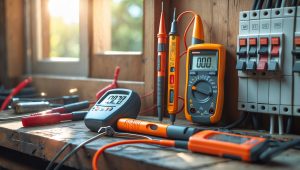
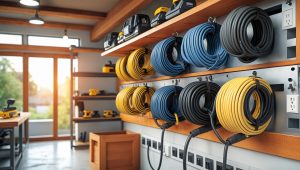
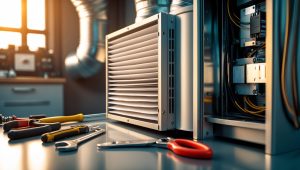
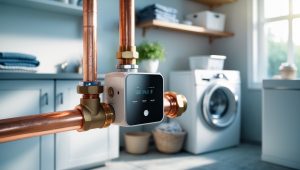
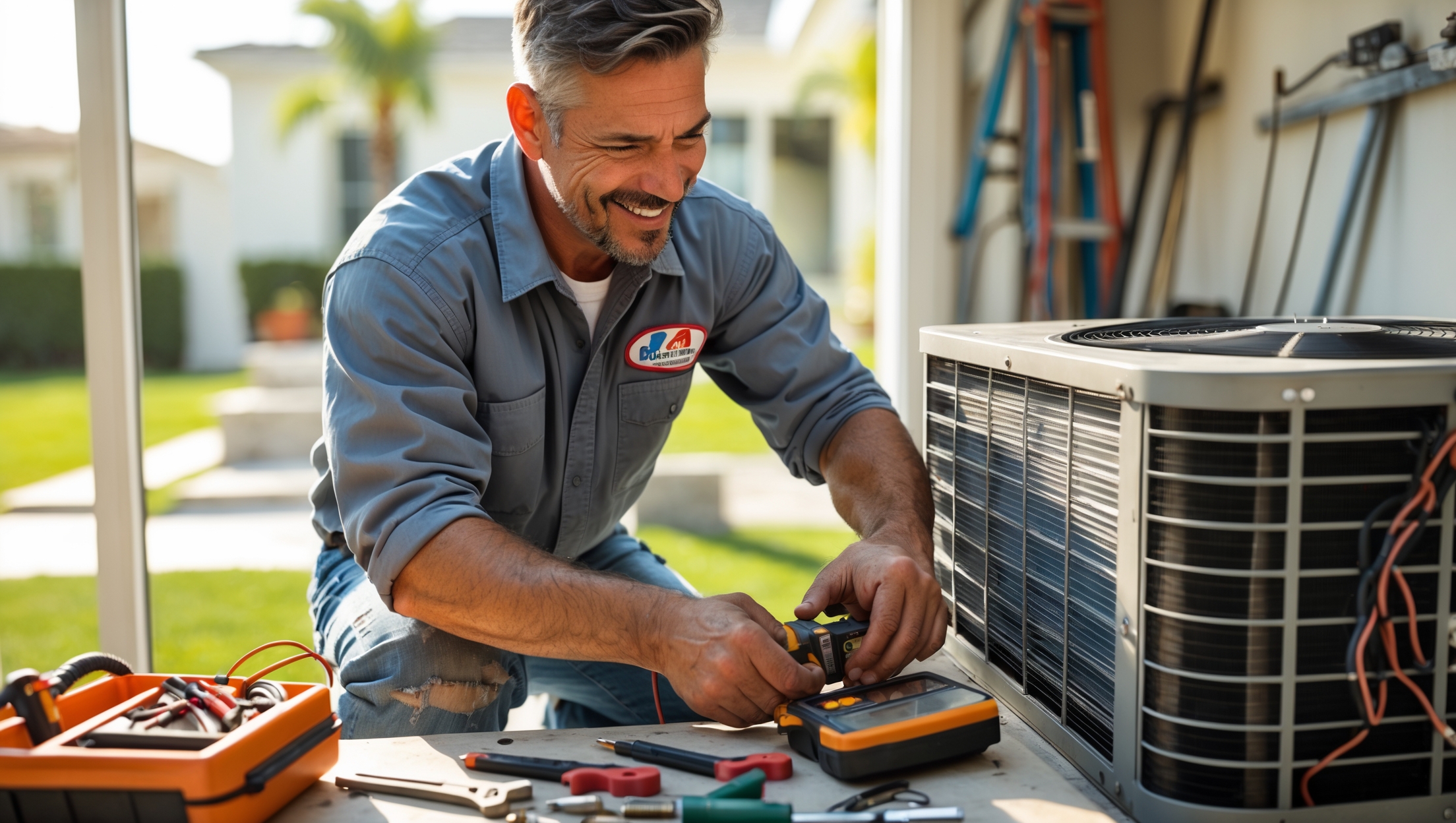
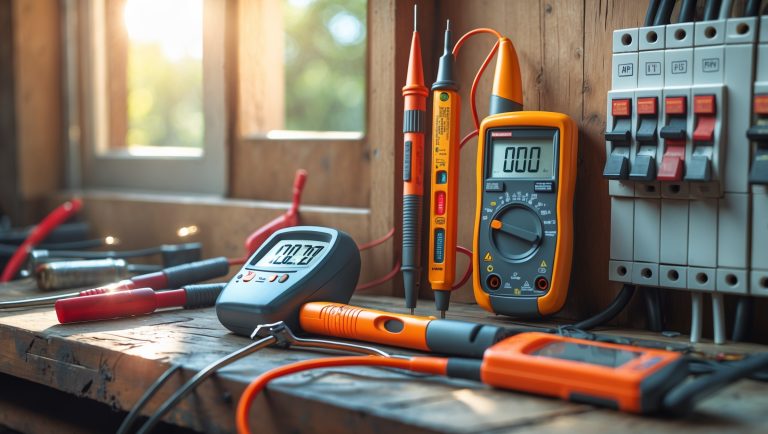
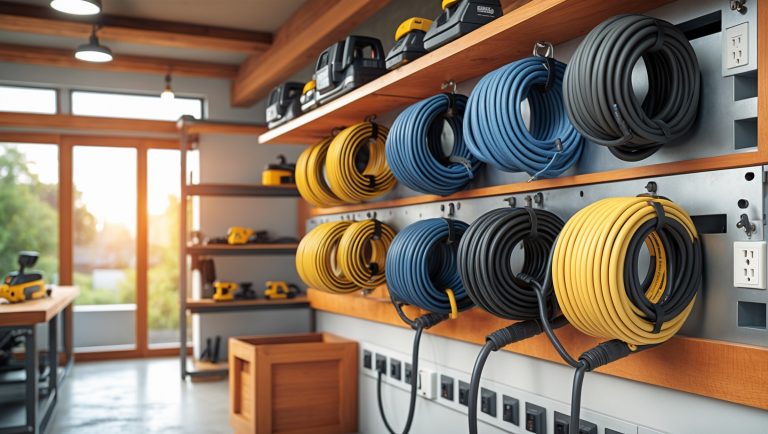
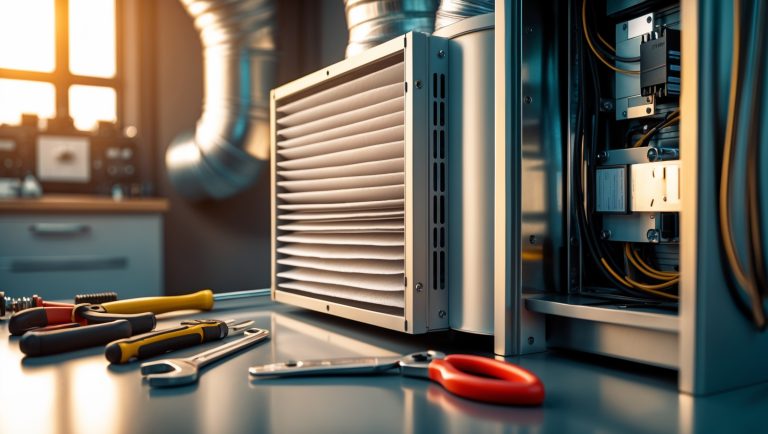
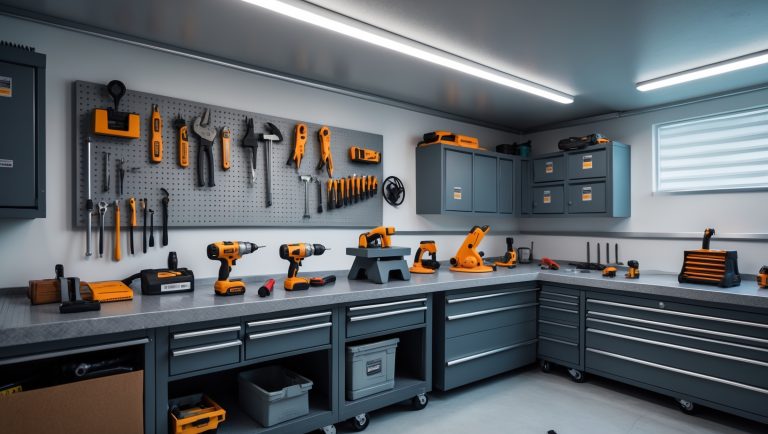
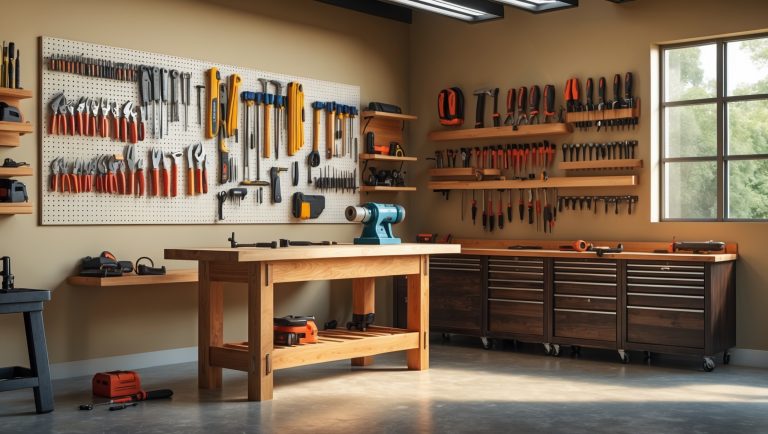
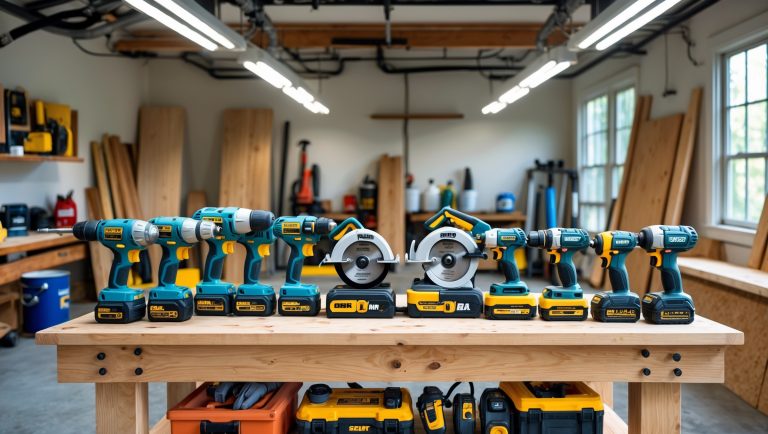
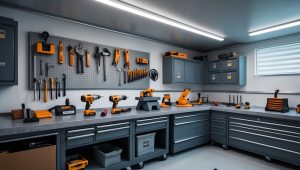

You mention that prompt HVAC repairs can prevent damage to wood floors and electronics. Are there any early warning signs before a complete system breakdown that I should look out for to help protect my property?
Yes, there are several early warning signs to watch for. Unusual noises, weak airflow, inconsistent temperatures, frequent cycling on and off, or unexplained increases in your energy bills can all point to HVAC issues. If you notice musty odors or excess humidity, these can also signal trouble. Addressing these signs early can help you avoid more serious damage to your floors and electronics.
If my heat pump stops working during a Los Angeles heatwave and I can’t get a technician right away, are there any specific steps I can take on my own to protect my kids and pets from the heat until help arrives?
If your heat pump stops working during a heatwave, prioritize keeping your home as cool as possible. Close curtains or blinds to block out sunlight. Use fans to circulate air, and if it’s safe, open windows during cooler hours. Encourage everyone to stay hydrated and avoid using heat-generating appliances. Make sure kids and pets stay in the coolest part of the house, and use cool, damp cloths for extra relief. If temperatures get dangerously high, seek out air-conditioned spaces like a friend’s home or a community cooling center if possible.
The article mentions that delayed repairs might lead to higher costs and even property damage. If I notice my system acting up but it’s still running, how do I know when it’s urgent enough for same-day service versus waiting a day or two?
If your HVAC system is making unusual noises, emitting burning smells, blowing only warm air (during cooling), leaking water, or repeatedly turning on and off, it’s best to call for same-day service. These can signal serious issues that may cause further damage or higher repair costs if ignored. If the system is simply less efficient but still functioning normally, waiting a day or two is usually safe. Always prioritize safety—if you’re unsure, a quick call to a technician can help you decide.
You talk about the importance of choosing the right HVAC contractor in LA, but is there a way to check if a company is certified or has a good reputation before calling them in an urgent situation?
Before calling an HVAC contractor in an urgent situation, you can quickly check if they’re certified by looking for their license number on their website or advertisements and verifying it on the California Contractors State License Board site. For reputation, scan recent reviews on Google or Yelp to see feedback from local customers. These quick steps help ensure you’re choosing a qualified and reputable company, even when time is tight.
I’m curious about what specific signs might indicate a heat pump is the source of the problem versus another HVAC component. Are there any troubleshooting steps I could try safely before calling a contractor in an emergency?
If your heat pump is the issue, you might notice it’s blowing air but not heating or cooling, making unusual noises, running constantly, or cycling on and off frequently. Before calling a contractor, you can safely check if the thermostat is set correctly, inspect and replace dirty filters, and ensure the circuit breakers haven’t tripped. Also, make sure the outdoor unit is clear of debris. If these steps don’t help, it’s best to call a professional.
You mentioned delaying repairs could lead to higher costs. For minor issues, what’s the typical price difference between handling it right away versus waiting a few days? I’m trying to budget, but don’t want to risk making things worse.
For minor HVAC issues, addressing the problem right away might cost anywhere from $100 to $300, depending on the part and labor. If you wait a few days and the issue worsens, repairs can become much more expensive, sometimes doubling in price or leading to major replacements costing $500 or more. Tackling small issues early usually helps avoid bigger expenses and system downtime.
If my heat pump suddenly stops working during a summer heatwave in Los Angeles, are there any specific quick troubleshooting steps I can try before calling a contractor for emergency repair, or could that risk making things worse?
If your heat pump stops working during a heatwave, you can safely check a few basics: make sure your thermostat is set correctly, ensure the circuit breaker hasn’t tripped, and check if the air filter is clean. Avoid opening up the unit or handling electrical parts, as this can cause further damage or be unsafe. Simple checks are fine, but if these don’t help, it’s best to call a professional.
I’m curious about the impact of heat pump failures specifically during LA’s summer heatwaves. Are there any warning signs homeowners should watch for before the system completely shuts down, or is it usually a sudden failure?
Heat pump failures during LA’s summer heatwaves can sometimes be sudden, but there are often warning signs to watch for. Homeowners might notice reduced cooling efficiency, unusual noises, weak airflow, or the system running constantly without reaching the desired temperature. If you spot these issues, it’s wise to schedule a professional inspection before the system fails completely, especially during extreme heat.
If my HVAC system fails during a heatwave and same-day repair isn’t available, are there any temporary solutions or precautions I can take to keep my home safe and comfortable while waiting for professional help?
If your HVAC system fails during a heatwave, you can stay safer and more comfortable by closing blinds and curtains to block sunlight, using portable fans for air circulation, and staying hydrated. If possible, spend time in the coolest part of your home, like a basement. Avoid using ovens or stoves that add heat. For vulnerable people, such as young children or elderly family members, consider visiting a friend’s home or a local cooling center until repairs can be made.
The article mentions that fast repairs are important to avoid damage like warped floors or mold. Are there any early warning signs homeowners in Los Angeles should watch for before these bigger problems start to happen with their HVAC system?
Some early warning signs to watch for include unusual noises from your HVAC system, weak airflow, inconsistent temperatures, unexpected increases in your energy bill, or visible moisture and dampness near vents. If you notice any of these, it’s wise to schedule an inspection quickly. Acting early can help you avoid more serious problems like warped floors or mold growth.
You mentioned that minor HVAC problems can quickly become expensive if not handled right away. How can a homeowner in Los Angeles tell the difference between an issue that needs immediate attention versus something that could wait for a regular service appointment?
Spotting the difference comes down to severity and comfort. If your HVAC system is making loud noises, emitting burning smells, not turning on at all, or blowing only hot air during a heatwave, it’s best to call for immediate help. Issues like weak airflow, minor noises, or a filter change can usually wait for a regular appointment. Always act fast if you notice safety concerns or total loss of cooling or heating.
If my heat pump suddenly stops working during a heatwave, how do I know whether the issue can be fixed quickly or if I should plan for a replacement? Are there specific warning signs I should look out for before calling for emergency service?
If your heat pump stops during a heatwave, first check if it’s a simple fix like a tripped breaker or a clogged air filter. Strange noises, foul odors, frequent cycling, or ice buildup are warning signs of more serious issues that may need urgent attention. If your system is old, frequently breaks down, or repairs are costly, replacement might be necessary. When in doubt, call an emergency HVAC technician to assess the situation and advise you on the best course of action.
You talk about fast repairs saving money by preventing minor issues from getting worse. Can you give some examples of small HVAC problems that can escalate if not handled quickly, especially in the Los Angeles climate?
Absolutely! In the Los Angeles climate, a minor refrigerant leak can quickly strain your system, leading to compressor failure and much higher repair costs. Clogged air filters, if ignored, can cause your unit to overheat and damage essential components. Similarly, a small electrical issue, like a worn capacitor, can result in a total system breakdown during a heatwave, making urgent repairs critical.
You mentioned that humidity imbalances from HVAC failures can lead to mold or damage sensitive furnishings. Are there any immediate precautions homeowners can take to protect their property while waiting for emergency repairs in Los Angeles?
Yes, there are a few immediate steps you can take. If your HVAC fails, try to keep windows and doors closed to prevent outside humidity from coming in. Use portable dehumidifiers or fans if you have them, and move sensitive items like wooden furniture or electronics away from damp areas. If you notice water leaks or condensation, dry those spots quickly with towels to help prevent mold growth until repairs can be made.
You mentioned that delaying repairs can cause bigger problems and higher costs later on. Could you give some examples of how minor HVAC issues might snowball if not handled right away, especially with heat pumps?
If a heat pump has a minor refrigerant leak and it’s ignored, it can lead to compressor failure, which is much more expensive to replace. Similarly, a clogged air filter that’s not changed can force the system to work harder, potentially causing overheating and damage to key components. Small electrical issues, like a loose connection, might result in circuit board failure if left untreated. Addressing these problems early helps prevent major breakdowns and higher repair bills.
When trying to avoid higher repair costs from delaying service, what’s the general timeframe in Los Angeles for getting same-day HVAC help during peak summer season? Does availability differ a lot between weekdays and weekends?
In Los Angeles during peak summer, most HVAC companies aim to provide same-day service, but due to high demand, wait times can range from a few hours up to a full day. Availability is often a bit better on weekdays since weekends tend to book up quickly. If you need urgent repairs, calling early in the morning improves your chances of getting seen the same day.
The article talks about both health risks and home damage from HVAC failures during extreme temperatures. In a heatwave, what are the immediate steps homeowners should take while waiting for emergency HVAC service to protect themselves and their property?
During a heatwave, the first priority is to stay safe and as cool as possible. Close blinds or curtains to block sunlight, use fans to help circulate air, and stay hydrated by drinking plenty of water. Try to spend time in the coolest part of your home and avoid using heat-generating appliances. For property protection, check for water leaks if your system was running before it failed and unplug sensitive electronics to prevent power surges. If anyone in your home is vulnerable to heat, consider temporarily staying with friends or at a cooling center until repairs are made.
Can you share tips on how to pick a trustworthy HVAC contractor in Los Angeles, especially when I’m under pressure from an urgent breakdown? Are there specific certifications or red flags I should watch out for?
When choosing an HVAC contractor quickly during an urgent situation, always check for a valid California contractor’s license and ensure they are insured. Look for NATE or EPA certification, which show technical expertise. Read recent reviews to gauge reliability, and be wary of contractors who pressure you for immediate decisions, demand full payment up front, or refuse to provide written estimates. Clear communication and transparent pricing are good signs of trustworthiness.
The article mentions that delaying HVAC repairs can raise costs because small issues might lead to expensive replacements. Can you give some examples of issues I should look out for that need same-day repair versus things that can wait a bit, especially with heat pumps?
For heat pumps, issues like strange noises, sudden loss of heating or cooling, electrical smells, or the system not turning on at all should get same-day attention—these can quickly get worse or signal safety risks. On the other hand, minor things like a dirty air filter, a slow thermostat response, or a slight drop in efficiency can usually wait a day or two, as long as your system is still running safely.
You mentioned that humidity imbalances from HVAC failures can cause mold or damage furnishings. Are there specific signs homeowners should watch for early on to catch humidity problems before they get serious, especially during heatwaves in Los Angeles?
Absolutely, catching humidity problems early can save you a lot of trouble. Look for signs like condensation on windows, musty odors, or damp spots on walls and ceilings. If furniture or fabrics feel clammy or develop mildew, that’s also a red flag. During heatwaves, keep an eye out for sudden spikes in indoor humidity or sticky air, as these can signal your HVAC isn’t regulating moisture properly.
I noticed heat pump issues are discussed separately from other HVAC problems. Are there specific warning signs for heat pump failures in LA’s climate that might not be as obvious for traditional AC systems?
Yes, heat pumps in Los Angeles can show different warning signs compared to traditional AC systems, especially since they operate for both heating and cooling. Watch for things like the unit blowing air that isn’t matching your thermostat setting, ice buildup even in warmer weather, or the system running constantly without properly heating or cooling. These can indicate heat pump-specific problems that may not appear with standard air conditioners.
The article states that quick repairs can be more affordable than letting problems escalate. Could you provide some guidance on what types of heat pump issues typically require immediate attention versus those that can wait a day or two, from a budget perspective?
Issues that need immediate attention include no heating or cooling, burning smells, strange noises like grinding or squealing, frequent cycling on and off, and refrigerant leaks—these can worsen quickly and usually cost more if delayed. Minor problems like a dirty filter, slight temperature inconsistencies, or a mild increase in energy bills can sometimes wait a day or two, but it’s still best to monitor them closely to avoid higher repair costs later.
I noticed you mentioned that minor HVAC problems can get a lot more expensive if not fixed quickly. As a first-time homeowner, how can I tell if an issue is urgent enough to need same-day repair, or if it’s safe to wait a day or two before calling someone?
If your HVAC system stops working entirely, makes loud or unusual noises, emits burning smells, or leaks water or refrigerant, those are signs of an urgent problem and you should call for same-day repair. If the issue is just reduced airflow, mild noise, or inconsistent temperatures, you can usually wait a day or two. When in doubt, it’s always safer to ask a professional for advice.
As a property manager in Los Angeles, I’m curious—do you have any tips for preventing humidity imbalances while waiting for an emergency HVAC repair? I’ve seen mold develop surprisingly quickly after a breakdown, so I’d like to minimize the risk for my tenants.
Absolutely, minimizing humidity is key while waiting for repairs. Encourage tenants to use portable dehumidifiers or fans to circulate air. Keep windows closed during humid weather, but open them if outside air is drier. Avoid activities like drying clothes indoors or boiling large pots of water. If safe, wipe down any condensation on windows or walls to prevent mold growth.
If my heat pump stops working during a Los Angeles heatwave, should I try any basic troubleshooting on my own before calling for emergency service, or is it safer to leave it to professionals right away?
It’s a good idea to check a few basic things before calling for emergency service. Make sure your thermostat is set correctly, the circuit breaker hasn’t tripped, and the air filter is clean. If these simple checks don’t solve the problem or if you notice unusual noises, burning smells, or signs of electrical issues, it’s safest to contact a professional right away to avoid further damage or safety risks.
For someone new to Los Angeles, how can I distinguish between heat pump issues that need immediate attention versus those that can wait until regular business hours? Any specific signs I should be aware of during a heatwave?
During a Los Angeles heatwave, if your heat pump stops cooling completely, makes loud or unusual noises, emits burning smells, or leaks water or refrigerant, it’s best to call for immediate help. Issues like mild airflow reduction or minor temperature fluctuations can usually wait until normal hours. Always prioritize urgent repairs when your safety or comfort is at risk due to high temperatures.
Your article mentions the risk of further damage to property like wood floors and electronics during an HVAC failure. Are there any quick temporary steps homeowners can take to protect their valuables while waiting for emergency repairs in Los Angeles?
Absolutely, there are some quick actions you can take. Move sensitive electronics and valuables away from areas where moisture or temperature changes are most likely, such as near vents or windows. Placing towels around doors can help restrict warm or humid air from spreading. For wood floors, lay down plastic sheets or towels to protect against condensation. Keeping interior doors closed can also help contain uncomfortable temperatures to certain rooms until repairs are completed.
If a heat pump suddenly stops working during a cold snap in Los Angeles, is it usually faster or more affordable to repair or replace it? Wondering what the usual turnaround time is for emergency heat pump repairs in this area.
If your heat pump suddenly stops working, repair is typically faster and more affordable than replacement, unless the unit is very old or has major damage. In Los Angeles, emergency heat pump repairs can often be scheduled within 24 hours, sometimes even the same day depending on technician availability. Replacement usually takes longer due to equipment ordering and installation, so repairs are generally the quicker option for urgent situations.
The article talks about emergency repairs but also mentions the importance of choosing the right contractor. What should a small business owner look for in an HVAC contractor to ensure fast and reliable service in urgent situations?
When selecting an HVAC contractor for urgent repairs, look for companies with 24/7 emergency response, a proven track record in your area, and technicians who are certified and insured. It’s also wise to check their response times, customer reviews, and whether they stock common replacement parts to prevent delays. Clear communication and transparent pricing are also important for peace of mind during emergencies.
You mentioned that delaying repairs can drive up costs pretty quickly. As a small business owner, are there certain early signs of HVAC trouble that I should watch for to avoid an emergency and extra expenses?
Absolutely, catching early signs can save you a lot. Watch for unusual noises like banging or grinding, weak airflow, inconsistent temperatures, or unexpected spikes in energy bills. Also, if your system runs more than usual or gives off strange odors, it’s best to schedule a check-up promptly. Addressing these issues early helps prevent costly breakdowns and keeps your business comfortable.
I see that prompt repairs are essential to prevent humidity issues and potential mold growth. If a heat pump starts malfunctioning over the weekend, is it better to wait for regular business hours or should I request emergency service even if the home still feels comfortable initially?
If your heat pump starts malfunctioning over the weekend, it’s usually best not to wait, even if your home feels comfortable at first. Issues like humidity and mold can develop quickly, especially in Los Angeles’ climate. Requesting emergency service ensures potential problems are addressed before they get worse or affect your indoor air quality.
If my heat pump starts making unusual loud noises during a Los Angeles heatwave, is that considered an urgent issue requiring immediate attention, or could it wait until regular business hours?
Loud or unusual noises from your heat pump, especially during a heatwave, can signal problems like loose parts, failing motors, or refrigerant issues. These problems can quickly escalate, potentially leading to a complete breakdown when you need cooling the most. It’s best to treat this as an urgent issue and call for immediate attention to avoid further damage or discomfort.
In the article, you talk about both health and property risks from HVAC breakdowns. Can you suggest any temporary solutions to keep my home safe and comfortable while I’m waiting for an emergency repair crew during a Los Angeles heatwave?
Absolutely. While waiting for emergency HVAC repairs during a heatwave, close blinds and curtains to block sunlight, use fans to circulate air, and stay hydrated. Limit the use of heat-generating appliances and, if possible, spend time in the coolest part of your home. If indoor temperatures climb too high, consider visiting a neighbor or public cooling center until repairs are completed.
You mention that prompt HVAC repairs can help prevent issues like warped wood floors and mold growth. Are there any early warning signs homeowners should watch for before these types of property damage occur?
Absolutely, there are several early warning signs homeowners can look out for before serious property damage occurs. Pay attention to unusual noises from your HVAC system, inconsistent temperatures, weak airflow, musty odors, or excessive humidity indoors. If you notice condensation on windows or damp spots near vents, those can also indicate trouble. Addressing these signs quickly can help prevent issues like warped floors and mold growth.
Choosing the right HVAC contractor sounds crucial in an emergency. What specific credentials or certifications should I look for in a Los Angeles HVAC repair company when I need a same-day heat pump fix?
When you need a same-day heat pump repair in Los Angeles, check that the HVAC contractor is licensed by the California State License Board (CSLB). Look for technicians with NATE (North American Technician Excellence) certification, as this means they’ve passed rigorous industry tests. Insurance, local experience with heat pumps, and positive customer reviews are also important before making your choice.
I’m a property manager and always worried about picking the right contractor quickly in the middle of an emergency. Are there specific certifications or questions we should prioritize when choosing an HVAC professional in LA for urgent repairs?
When choosing an HVAC contractor in LA for emergencies, prioritize technicians with NATE (North American Technician Excellence) certification and make sure they are licensed and insured in California. Ask if they offer 24/7 emergency services, request references from other property managers, and confirm their experience with your specific system type. These steps help ensure reliable, timely repairs when you need them most.
If my heat pump stops working during a Los Angeles heatwave, are there any quick DIY troubleshooting steps I can safely try before calling for emergency repair? Or does that risk making the problem worse?
If your heat pump stops working, you can safely try a few simple checks: make sure the thermostat has working batteries and is set correctly, check that the circuit breaker hasn’t tripped, and ensure the outdoor unit is clear of debris. Avoid opening the unit or handling electrical components, as that could cause more damage or safety risks. If these steps don’t help, it’s best to call a professional.
I’m curious about your advice on choosing the right HVAC contractor in a rush, especially during Los Angeles heatwaves. Are there specific certifications or qualities you recommend prioritizing when time is of the essence?
When you need an HVAC contractor quickly during a heatwave, look for companies with valid California state licensing and NATE-certified technicians, since these certifications indicate proper training and expertise. Prioritize contractors who offer 24/7 emergency services, have strong recent reviews, and can provide clear estimates upfront. Quick response time and transparent communication are also important qualities to look for when time is critical.
How do I know if an HVAC issue in my home is serious enough to require same-day emergency repairs, or if it’s something that can wait a day or two without risking my health or property in Los Angeles?
If your HVAC system is completely nonfunctional during extreme heat or cold, you smell burning or gas, hear loud unusual noises, or notice water leaks, it’s best to call for same-day emergency repairs to protect your health and prevent property damage. However, minor issues like uneven temperatures or strange but not alarming noises usually can wait a day or two. If you’re ever unsure, it’s wise to ask a professional for advice.
The article touches on financial implications for delaying HVAC repairs. Do you have any tips for budgeting or preparing in advance for urgent repairs, especially when it comes to expensive heat pump issues?
Preparing financially for urgent HVAC or heat pump repairs can save a lot of stress. Consider setting aside a small monthly amount in a dedicated emergency fund just for home repairs. Regular maintenance can also help catch issues early before they become costly. Reviewing your home insurance or considering a home warranty plan that covers HVAC systems is another way to manage unexpected expenses.
What should I do while waiting for the HVAC technician to arrive if my A/C fails on a really hot day? Are there specific steps I can take to keep my kids and pets safe during the wait?
If your A/C stops working on a very hot day, keep your family safe by staying hydrated and moving everyone, including pets, to the coolest part of your home. Close curtains or blinds to block out sunlight, and use fans to circulate air if possible. Avoid using heat-generating appliances, and provide cool, damp cloths for kids and pets. If your home becomes dangerously hot, consider going to a nearby friend’s house or a public place with air conditioning until help arrives.
I noticed the article touches on both protecting the home and avoiding expensive repairs. Are there specific preventative maintenance tips you recommend for property managers in Los Angeles to minimize the chance of sudden heat pump failures or urgent breakdowns?
For property managers in Los Angeles, scheduling seasonal inspections with a licensed HVAC technician is key—especially before the hottest months. Clean or replace filters every 1–3 months, keep outdoor heat pump units clear of debris, and check for any unusual noises or leaks. Also, make sure electrical connections are secure. Regular maintenance like this reduces the risk of sudden failures and helps avoid major, costly repairs.
You mentioned that fast repairs can prevent bigger expenses later. Could you give examples of what minor HVAC issues might turn into major repairs if not addressed quickly, especially in the Los Angeles climate?
Certainly! In Los Angeles, ignoring small HVAC problems like unusual noises, weak airflow, or leaking refrigerant can quickly lead to larger issues. For example, a minor refrigerant leak can strain your system and eventually damage the compressor, requiring expensive replacement. Clogged filters or ducts, if left unchecked, can cause overheating or even total system failure. Addressing these early helps avoid much higher repair costs down the road.
The article talks a lot about the risks of humidity imbalances during an HVAC failure. Are there temporary steps homeowners can take to control humidity while waiting for emergency repairs, especially during a heatwave?
Yes, there are some temporary steps homeowners can take to help control humidity while waiting for HVAC repairs. You can use portable dehumidifiers or even place moisture-absorbing products like silica gel or baking soda around your home. Running exhaust fans in kitchens and bathrooms will help vent humid air outside. Try to keep windows and doors closed during the hottest, most humid parts of the day, and avoid activities that add extra moisture, such as boiling water or drying clothes indoors.
You mention that humidity imbalances from HVAC failures can lead to mold growth or damage to furnishings. Are there any fast-acting steps homeowners can take to prevent humidity problems while waiting for emergency repairs in Los Angeles?
Yes, there are a few quick actions you can take to help control humidity while waiting for HVAC repairs. Use portable dehumidifiers or fans to circulate air and reduce moisture indoors. If possible, open windows during cooler, less humid times of day to promote ventilation. Avoid running hot showers or boiling water, since this adds moisture to the air. These steps can help minimize excess humidity and reduce the risk of mold or damage until your system is fixed.
If our heat pump stops working unexpectedly, are there any troubleshooting steps we can safely try before calling a contractor? I’d like to avoid unnecessary service calls, but don’t want to risk causing further damage.
If your heat pump stops working, you can safely check a few things before calling a contractor. First, make sure your thermostat is set correctly and the batteries are good. Check that your circuit breakers haven’t tripped, and inspect the air filter to ensure it’s not clogged. Also, confirm the outdoor unit is free of debris. If these steps don’t help, it’s best to call a professional to avoid causing damage.
If my heat pump suddenly stops working during a Los Angeles heatwave, is there anything I can safely try myself before calling for same-day emergency repair, or should I leave it all to the professionals right away?
If your heat pump stops working during a heatwave, you can check a few things safely: make sure the thermostat is set correctly, inspect the circuit breaker for any tripped switches, and look for obvious blockages around the outdoor unit. If these don’t solve the issue or if you notice strange noises or smells, it’s best to call a professional right away to avoid further damage or safety risks.
When looking for a reliable same-day HVAC contractor in Los Angeles, what red flags should I watch out for to avoid getting stuck with an inexperienced or overpriced service during an emergency?
Watch out for contractors who can’t provide a clear estimate upfront or pressure you into immediate decisions. Be cautious if they lack proper licensing and insurance, have mostly negative or no reviews, or arrive without uniforms or marked vehicles. Also, avoid companies that ask for full payment before any work begins. Reliable contractors will explain the problem clearly and offer transparent pricing.
I’m concerned about the financial impact of urgent HVAC repairs in Los Angeles. Are same-day repair services generally more expensive than regular appointments, or are there ways to avoid extra costs if I need quick help during extreme weather?
Same-day HVAC repair services in Los Angeles often cost more than regular appointments due to priority scheduling and emergency call-out fees. However, some companies offer maintenance plans or memberships that include discounted emergency services. If you need urgent help, try calling several providers for quotes and ask if they waive extra fees during extreme weather. Regular system maintenance can also reduce the chances of costly emergencies.
When choosing an HVAC contractor for urgent repairs here in Los Angeles, what are the top qualifications or red flags to watch for? Does response time always outweigh experience or should I balance both when picking who to call first during an emergency?
When urgent HVAC repairs are needed, look for contractors who are licensed, insured, and have strong customer reviews—those are key qualifications. Red flags include unclear pricing, lack of credentials, or poor communication. While a fast response is important, it shouldn’t outweigh experience and reliability. Ideally, choose a contractor who offers both prompt service and proven expertise to ensure quality repairs that last.
You mentioned that delaying HVAC repairs can lead to higher costs and even property damage. How quickly do typical repair companies in Los Angeles respond, and are there options for guaranteed same-day service if my heat pump fails?
Most HVAC repair companies in Los Angeles aim to respond within 24 hours, especially during peak seasons. Many offer same-day service for emergencies, and some even guarantee it for an added fee. If your heat pump fails, it’s best to call early in the day and ask specifically about same-day availability and any guarantees they provide to ensure prompt assistance.
I manage a rental property in Los Angeles. If the HVAC goes out after hours, what steps should I take to make sure my tenants stay safe and comfortable while waiting for same-day repairs?
If your HVAC fails after hours, begin by informing your tenants right away and assuring them you’re arranging repairs. Suggest they use portable fans or heaters if available and keep windows closed or open depending on outside temperatures. If extreme heat or cold is expected, consider temporary lodging options for vulnerable tenants. Contact an emergency HVAC service as soon as possible to schedule same-day repairs and keep everyone updated on the repair status.
You mentioned humidity imbalances can cause mold or damage furnishings after an HVAC failure. If I notice weird humidity levels or smells but my system is still running, is that something I should treat as an emergency even if the temperature seems okay?
Yes, unusual humidity levels or musty smells can be early signs of HVAC trouble, even if the temperature feels normal. Mold can develop quickly and cause damage or health issues. It’s a good idea to have a professional inspect your system promptly to prevent further problems, rather than waiting for a full breakdown.
If my heat pump stops working during a heatwave, are there immediate troubleshooting steps I should try before calling a contractor, or can that actually make things worse? Curious what you recommend for owners to do in that situation.
If your heat pump stops working during a heatwave, you can check the thermostat settings, make sure the circuit breakers haven’t tripped, and inspect the air filter for clogs. Also, ensure the outdoor unit is clear of debris. These simple checks are safe and may resolve minor issues. However, avoid opening panels or handling wiring, as that could make things worse. If these steps don’t help, it’s best to call a professional.
Could you elaborate more on how to spot early signs of HVAC trouble before a complete breakdown happens? I’d like to avoid costly repairs but I’m not sure what warning signs to look for in my system.
Absolutely, spotting early HVAC issues can save you from expensive repairs. Look out for unusual noises such as rattling, squealing, or banging. Pay attention to weak airflow, uneven heating or cooling, or any sudden spikes in your energy bills. Also, notice if the system cycles on and off more frequently or if there are unpleasant odors when it runs. Addressing these warning signs early by calling a professional can help prevent bigger problems.
The article highlights heat pump issues as a major concern in emergencies. Are there common troubleshooting steps we can safely try ourselves before calling for same-day repair, or is it best to avoid DIY entirely when a heat pump stops working?
If your heat pump stops working, there are a few basic checks you can safely try: make sure the thermostat is set correctly, check for a tripped circuit breaker, and ensure the air filter isn’t clogged. If these steps don’t help or if you notice strange noises or burning smells, it’s best to avoid further DIY and contact a professional for same-day repair.
If my heat pump starts making strange noises or stops working during a Los Angeles heatwave, what initial troubleshooting steps can I safely take before calling for emergency repairs?
If your heat pump is making unusual noises or stops working during a heatwave, start by checking your thermostat settings and making sure it has power. Inspect your circuit breakers to confirm nothing has tripped. You can also check and replace dirty air filters, as clogged filters can affect performance. Avoid opening the unit or handling any wiring—leave those steps to professionals. If these checks don’t resolve the issue, it’s best to call for emergency repairs.
You mentioned that minor HVAC issues can quickly escalate and end up costing a lot more. Are there specific early warning signs I should train my staff to watch for, so we can call for repairs before things get urgent?
Absolutely, catching problems early can save a lot of time and money. Train your staff to look for signs like unusual noises from the system, weak airflow, inconsistent temperatures, strange odors, or increased energy bills. Also, watch for frequent cycling on and off or any unexpected leaks. Reporting these early gives you time to address issues before they turn into major repairs.
If my HVAC system breaks down during one of those intense LA heatwaves, what should be the very first thing I do before the repair team arrives, especially if I have small kids or pets at home?
If your HVAC system fails during a heatwave, the first thing you should do is move your kids and pets to the coolest part of your home—usually a shaded room on the lowest floor. Close curtains or blinds to block out sunlight, and set up fans for air circulation. Make sure everyone stays hydrated and avoid using heat-generating appliances. This can help keep things as comfortable and safe as possible until the repair team arrives.
The article explains how delaying HVAC repairs can lead to bigger expenses. Is there a ballpark estimate of how much more costly emergency repairs or replacement might get if I wait a day or two instead of calling right away?
Delaying HVAC repairs, even by just a day or two, can significantly increase costs. While it varies by issue, minor repairs that might cost $200–$400 could escalate into major problems needing $1000 or more if left unattended. In some cases, waiting could cause system failure, leading to full replacement costs ranging from $5000 to $10,000. Acting quickly usually helps you avoid these larger expenses.
I’m trying to figure out what to do first during a heatwave if my AC totally stops working—are there any quick troubleshooting tips you’d recommend before I call a same-day repair service in Los Angeles?
If your AC stops working during a heatwave, first check that your thermostat is set to cool and the batteries are working. Next, make sure your circuit breaker hasn’t tripped. You can also inspect and replace clogged air filters and clear any debris around the outdoor unit. If these steps don’t help, it’s best to call a same-day repair service to prevent further damage.
The article mentions that ignoring minor HVAC issues can increase costs down the line. What are some early warning signs homeowners in LA should watch for to catch problems before they become emergencies?
Homeowners in Los Angeles should watch for early warning signs like strange noises (grinding, squealing, or banging), weak airflow, inconsistent temperatures, frequent cycling on and off, unusual odors, or a sudden spike in energy bills. Noticing any of these signs early and scheduling a professional inspection can help address problems before they turn into costly emergencies.
You mention that delaying HVAC repairs can increase costs. What are some early warning signs that could help me catch issues before they become expensive emergencies?
Catching HVAC issues early can definitely help you avoid costly repairs. Watch out for warning signs like strange noises (grinding, banging, or squealing), weak airflow from vents, unusual odors, frequent cycling on and off, and higher-than-normal energy bills. If you notice any rooms not heating or cooling evenly, or see water leaks around your unit, it’s a good idea to call a professional before things get worse.
The article mentions both heatwaves and rare cold snaps in LA, but are there different warning signs I should watch for in my heat pump depending on whether it’s being used for cooling or heating? What are the most common urgent issues for each season?
Yes, there are different warning signs depending on whether your heat pump is in cooling or heating mode. In summer, watch for weak airflow, warm air blowing instead of cool, ice buildup on coils, or unusual noises. In winter, be alert for the system blowing cold air, frequent cycling, or the outdoor unit freezing up. Urgent issues like total system failure, electrical problems, or rapid temperature swings can occur in any season, but cooling failures are more common in heatwaves and defrost or freezing issues happen more during cold snaps.
You mention that delaying HVAC repairs can increase the risk of more expensive damage to property, like warped floors and electronics. Are there specific early warning signs I should watch for with my heat pump before things get worse?
Absolutely, catching early warning signs can help you avoid bigger problems. For heat pumps, watch for strange noises like grinding or rattling, reduced heating or cooling performance, ice buildup, frequent cycling on and off, or higher-than-normal energy bills. If you notice odd smells or the unit is blowing air that doesn’t match your temperature setting, it’s best to call a technician promptly.
You mentioned that minor HVAC issues can quickly turn into more expensive problems if not addressed fast. Could you provide some ballpark figures or examples of the cost difference between immediate repairs and delayed fixes for common HVAC failures in Los Angeles?
Absolutely. For example, fixing a minor refrigerant leak right away might cost around $200–$400. If left untreated, it can damage the compressor, leading to a repair bill of $1,500–$2,500. Similarly, replacing a worn-out capacitor immediately could be about $150–$300, but if ignored, it might cause motor failure, costing $800–$1,200. Addressing small issues promptly often saves a significant amount compared to waiting.
If fast repairs usually mean more affordable solutions, what should I expect in terms of cost difference between immediate same-day service and waiting a few days for a regular appointment, especially during peak summer months in Los Angeles?
Immediate same-day HVAC service in Los Angeles, especially during peak summer, typically costs more than scheduling a regular appointment for a few days later. The extra charge can range from 10% to 50% more, depending on demand and provider policies. This premium covers emergency response and priority labor. If timing allows and your system is still partly functional, waiting for a standard appointment can save you money, but for urgent issues, the added cost ensures faster comfort and safety.
When it comes to choosing an HVAC contractor in LA for emergency repairs, what should we look out for to make sure we’re hiring someone reliable and not getting overcharged for same-day service during a heatwave?
To find a reliable HVAC contractor in LA during emergencies, always check their licensing, insurance, and local reputation first—reviews from other homeowners can offer good insight. Get clear, upfront pricing before any work begins, and ask if there are additional fees for same-day or after-hours visits. Reliable contractors will explain repairs, costs, and timelines transparently, so you won’t face unexpected charges.
In situations where my HVAC breaks down during a Los Angeles heatwave, how do I determine whether it’s a heat pump issue or something else before calling a contractor? Are there quick checks I can do myself first?
You can do a few quick checks before calling a contractor. First, make sure your thermostat is set correctly and the batteries are working. Check your circuit breaker to see if any HVAC-related switches have tripped. Also, inspect the air filters—dirty filters can cause problems. If you have a heat pump, see if it’s running but not cooling, or if there’s frost buildup. Unusual noises or no airflow could point to other HVAC issues. If these checks don’t resolve it, it’s best to call a professional.
You mentioned that delaying HVAC repairs can make problems more expensive in the long run. Could you give some idea of what types of minor issues tend to get worse quickly and lead to bigger costs if not handled right away?
Absolutely, some small HVAC issues can definitely escalate if not addressed quickly. For example, a clogged air filter can make your system work harder, leading to motor or compressor failure. Refrigerant leaks may start small but can damage the compressor over time. Unusual noises or minor leaks can indicate worn parts, which, if ignored, can lead to much more expensive repairs or even a system replacement. Handling these early usually saves money and hassle.
You mentioned that fast repairs are important to prevent things like wood floors warping or mold growth when the HVAC system fails. How quickly does this type of damage usually start happening in Los Angeles conditions? Is it a matter of hours or days before it becomes a real risk?
In Los Angeles, damage can start surprisingly quickly, especially during hot, humid weather. Wood floors may begin to warp within 24 to 48 hours if humidity levels spike due to a broken HVAC system. Mold can start growing in as little as 24 hours, especially in damp or poorly ventilated areas. Acting within the first day is the best way to prevent serious problems.
You mentioned that rapid HVAC repairs are crucial to prevent damage to property, like warped wood floors or mold growth. Are there any immediate steps homeowners can take themselves to minimize these risks while waiting for a professional to arrive?
Absolutely, homeowners can take some quick actions while waiting for the HVAC technician. If there’s a water leak, turn off the HVAC system and, if safe, shut off the water source to prevent further damage. Use towels or a wet/dry vacuum to remove standing water. Open windows for ventilation if humidity is an issue, and move valuables or sensitive items away from affected areas to reduce the risk of warping or mold.
I’m new to heat pump systems, and you mentioned they can cause humidity imbalances if they fail. Are there any warning signs I should watch for before it turns into a bigger issue, or does it usually happen suddenly?
Humidity imbalances from heat pump issues usually develop gradually rather than all at once. Some warning signs to look out for include musty odors, increased condensation on windows, or your home feeling stuffy or damp. If you notice your indoor air feels less comfortable or your heat pump is running constantly without maintaining the set temperature, it’s a good idea to have it checked before bigger problems arise.
If my heat pump suddenly stops working during a summer heatwave in Los Angeles, is it better to try to troubleshoot it myself first or should I immediately call for emergency repair? What basic steps should I safely attempt before calling a pro?
If your heat pump stops working during a heatwave, you can safely check a few basics before calling for emergency repair. Make sure the thermostat is set to cool, replace or clean the air filter, and check your circuit breakers for any tripped switches. If everything looks normal and the pump still doesn’t work, it’s best to call a professional right away, as further troubleshooting could risk damage or safety issues.
In terms of choosing the right HVAC contractor during an emergency, what specific qualifications or certifications should Los Angeles residents look for, especially when dealing with urgent heat pump issues?
When choosing an HVAC contractor in Los Angeles for emergency heat pump repairs, look for a contractor who is licensed by the California State License Board (CSLB). It’s also important that technicians are EPA-certified for handling refrigerants. Additional certifications from organizations like NATE (North American Technician Excellence) show advanced expertise. Make sure the contractor is insured and can provide references for similar emergency repairs.
You talk about the financial risks of delaying repairs. How do I know when it’s better to repair versus replace an older heat pump, especially if I keep having to call for urgent service in Los Angeles?
If your heat pump is over 10-15 years old, needs frequent repairs, or your energy bills keep rising, replacement might be more cost-effective than repeated fixes. Frequent urgent service calls often signal that the system is nearing the end of its useful life. A professional technician can assess your equipment and help you compare the costs of ongoing repairs with the benefits of installing a newer, more efficient system.
You talked about how delaying HVAC repairs can increase costs. For someone on a budget, what are some warning signs that require immediate service versus ones that could wait a day or two without causing major issues?
If you’re on a budget, it’s important to know which HVAC warning signs need urgent attention. Immediate service is needed for complete system failures, burning smells, electrical issues, loud banging noises, or rapid temperature drops. These could lead to safety hazards or major damage. Minor issues, like slight drops in performance or odd smells that aren’t burning or chemical, can often wait a day or two. Just avoid ignoring issues completely, as even small problems can worsen over time.
If my heat pump stops working during one of those LA heatwaves, how can I tell if it’s something I can troubleshoot myself before calling for urgent repairs? Are there any common quick fixes recommended for homeowners?
If your heat pump stops working during a heatwave, start by checking your thermostat settings to ensure they’re correct. Make sure the circuit breakers haven’t tripped and that air filters are clean—clogged filters can cause issues. Also, inspect the outdoor unit for debris or blockages. If these steps don’t resolve the problem or if you hear unusual noises, it’s best to call a professional for urgent repairs.
As a business owner in Los Angeles, I’m worried about the financial impact of an HVAC breakdown. Are there specific warning signs I should look for to catch issues early, before they turn into expensive emergency repairs?
Absolutely, spotting HVAC issues early can help you avoid costly breakdowns. Look out for unusual noises, weak airflow, inconsistent temperatures, odd smells, frequent cycling, or increased energy bills. These signs often indicate developing problems. Scheduling regular professional maintenance is also a great way to catch small issues before they become major, expensive repairs.
With the potential for both heat and rare cold spells in Los Angeles, do most HVAC contractors here offer true 24/7 emergency service, and should I expect to pay extra for after-hours calls even if it’s just a quick repair?
Most HVAC contractors in Los Angeles do offer 24/7 emergency services to handle urgent repairs, given the region’s unpredictable weather. However, it’s common to pay an extra fee for after-hours or weekend calls, even if the repair is quick. The surcharge covers staff availability and rapid response. Always ask about emergency rates in advance to avoid surprises.
You talk about humidity imbalances potentially causing mold or damage to furnishings during HVAC breakdowns. Are there temporary steps homeowners can take to control humidity until a professional arrives, especially during a heatwave?
Yes, homeowners can take a few temporary steps to help control humidity during an HVAC breakdown. Use portable dehumidifiers if you have them, and run exhaust fans in kitchens and bathrooms to remove excess moisture. Keep windows and doors closed during a heatwave to avoid hot, humid air from coming inside. If safe, wiping down surfaces where condensation appears can also help limit moisture buildup until a professional can address the issue.
As a small business owner with older HVAC equipment, I’m worried about the financial impact of emergency repairs mentioned in the article. Are there specific preventative maintenance steps you’d recommend to avoid sudden breakdowns and lower my risk of major repair costs in Los Angeles?
Keeping older HVAC systems running smoothly is all about regular maintenance. Schedule seasonal professional inspections to catch issues early, clean or replace air filters monthly, check refrigerant levels, and ensure all electrical connections are tight. Also, clear outdoor units of debris and dust. These steps can help prevent unexpected breakdowns and reduce costly emergency repairs, especially in the Los Angeles climate.
In your guide, you mention the importance of choosing the right HVAC contractor during an emergency. Are there specific certifications or indicators you recommend looking for in a Los Angeles area contractor to ensure they can handle urgent heat pump repairs efficiently?
When searching for an HVAC contractor in Los Angeles, look for technicians who are NATE-certified (North American Technician Excellence), as this shows they have proven technical expertise. Also, make sure the contractor is licensed by the California Contractors State License Board (CSLB) and carries proper insurance. Experience with heat pump systems and a quick response time for emergencies are also strong indicators of a reliable contractor.
I manage a small apartment complex and worry about system failures during peak season. Could you share tips on how to choose a reliable HVAC contractor in LA who can really deliver fast emergency service, especially on short notice?
When selecting an HVAC contractor in LA for emergency service, look for companies with 24/7 availability and a proven track record responding quickly. Check for proper licensing, insurance, and good reviews from other property managers. Ask about average response times, technician training, and whether they stock common replacement parts. Having a service agreement can also help ensure your property gets priority during peak seasons.
You talk about the risks of HVAC breakdowns during LA heatwaves, especially for vulnerable populations. Are there any temporary solutions or safety tips homeowners can use to stay safe until a technician arrives?
Yes, there are several steps homeowners can take while waiting for HVAC repairs during a heatwave. Stay hydrated and use fans to circulate air, even if they’re not cooling the air. Keep blinds or curtains closed to block out sunlight and reduce indoor temperatures. If possible, spend time in the coolest part of your home, like basements or shaded rooms. For those at higher risk, consider visiting a neighbor, friend, or a designated local cooling center until your HVAC system is fixed.
You mention that delays in HVAC repairs can lead to increased costs and property damage. Are there any preventative measures homeowners in Los Angeles can take to minimize the risk of sudden HVAC breakdowns, especially during heatwaves?
Homeowners in Los Angeles can reduce the risk of sudden HVAC breakdowns by scheduling regular maintenance, changing air filters every 1-3 months, and keeping outdoor units clear of debris. It’s also helpful to check for unusual noises or reduced performance and address small issues promptly. During heatwaves, avoid overworking the system by setting thermostats a few degrees higher and using fans to help circulate cool air.
You bring up choosing the right HVAC contractor for emergencies in Los Angeles. Are there specific certifications or questions we should ask to make sure the contractor is qualified to handle heat pump issues quickly and safely?
Yes, when hiring an HVAC contractor for emergency heat pump repairs in Los Angeles, look for certifications like NATE (North American Technician Excellence) or EPA Section 608. Ask if they have experience with your specific heat pump brand, their response time for emergencies, and if they’re licensed and insured in California. Also, inquire about warranties on their repair work to ensure reliability.
You mentioned that humidity imbalances from HVAC failures can promote mold growth. What are some immediate steps homeowners in Los Angeles should take to prevent mold while waiting for emergency repairs, especially during a heatwave?
To help prevent mold growth while waiting for HVAC repairs, keep your home as dry as possible. Use fans to circulate air, wipe up any condensation you see on surfaces, and open windows early in the morning or late at night when humidity is lowest. Avoid running hot water or using appliances that add moisture to the air. If you have a portable dehumidifier, run it in areas prone to dampness until your HVAC system is fixed.
If my heat pump suddenly stops working during a heatwave, how quickly can most HVAC contractors in Los Angeles usually respond, and are there any ways to speed up the process during peak demand?
During a heatwave, most HVAC contractors in Los Angeles aim to respond within 24 hours, but high demand can sometimes cause delays of up to 48 hours. To speed up the process, try contacting multiple contractors at once, mention that you have an urgent situation, and ask about any emergency or after-hours services. Being flexible with appointment times may also help secure an earlier visit.
I see that sudden HVAC failures in LA can impact health and property. Do you have any advice on quick steps we can take to protect our building and employees while waiting for a heat pump repair technician to arrive?
Absolutely. If your heat pump fails unexpectedly, try to keep windows and doors closed to maintain the indoor temperature as much as possible. Use portable fans or space heaters safely if conditions allow. For employee comfort and safety, move people to cooler or warmer areas as needed, and monitor anyone sensitive to temperature changes. If temperatures become extreme, consider temporarily relocating staff until the repair is completed.
The article mentions that heat pump issues can require fast solutions, especially during extreme weather. Are there any stopgap measures or troubleshooting steps homeowners can try themselves while waiting for a professional to arrive?
Yes, there are a few things homeowners can try while waiting for a professional. First, check your thermostat settings to ensure it’s set correctly. Replace or clean air filters if they’re dirty, as clogged filters can restrict airflow. Make sure all vents are open and unblocked. If your heat pump isn’t running, check the circuit breaker to see if it has tripped. However, avoid opening panels or handling wiring yourself for safety.
With Los Angeles summers getting hotter, I worry about how fast HVAC companies can respond during a citywide heatwave. Do you have any tips for getting prioritized service or preparing my system ahead of time to reduce the risk of urgent breakdowns?
Booking a preseason maintenance check before peak summer hits is one of the best ways to reduce the risk of breakdowns and ensure your system is ready for heatwaves. To get prioritized service during busy periods, consider signing up for a maintenance plan with your HVAC provider—many companies offer priority scheduling for members. Also, keep your system’s filters clean, and clear any debris around outdoor units to help your system run efficiently.
If my heat pump suddenly stops working in the middle of a heatwave, what can I do immediately to protect my kids and pets from the heat until a technician arrives?
If your heat pump fails during a heatwave, move your kids and pets to the coolest room in your home, preferably one that’s shaded and away from direct sunlight. Close blinds and curtains to block heat, use fans to circulate air, and offer plenty of water to prevent dehydration. Avoid using heat-generating appliances. If the temperature inside becomes unsafe, consider going to a nearby friend’s or family member’s house, or a public space with air conditioning, until repairs can be made.